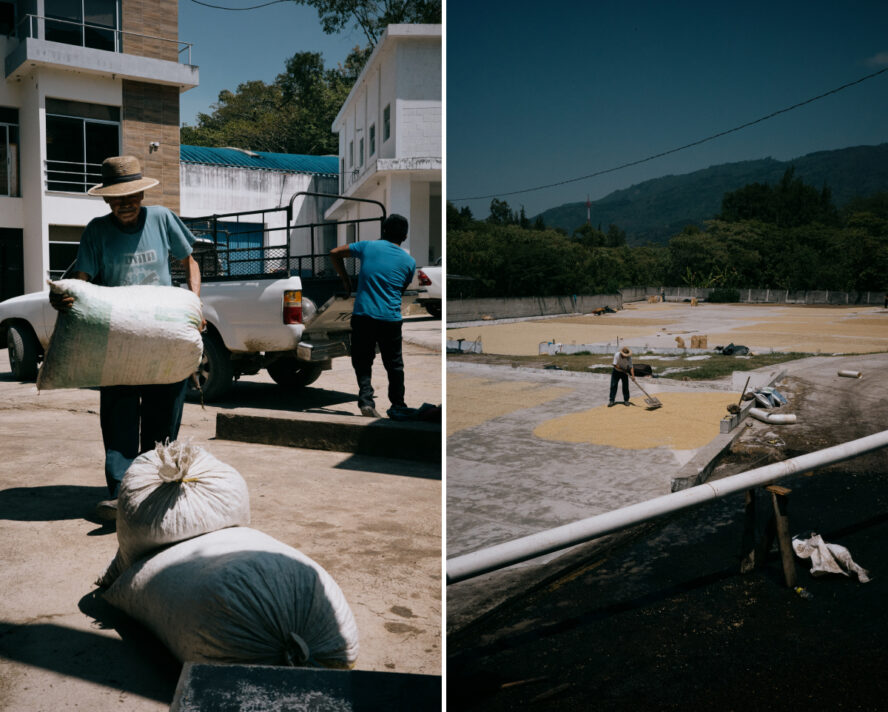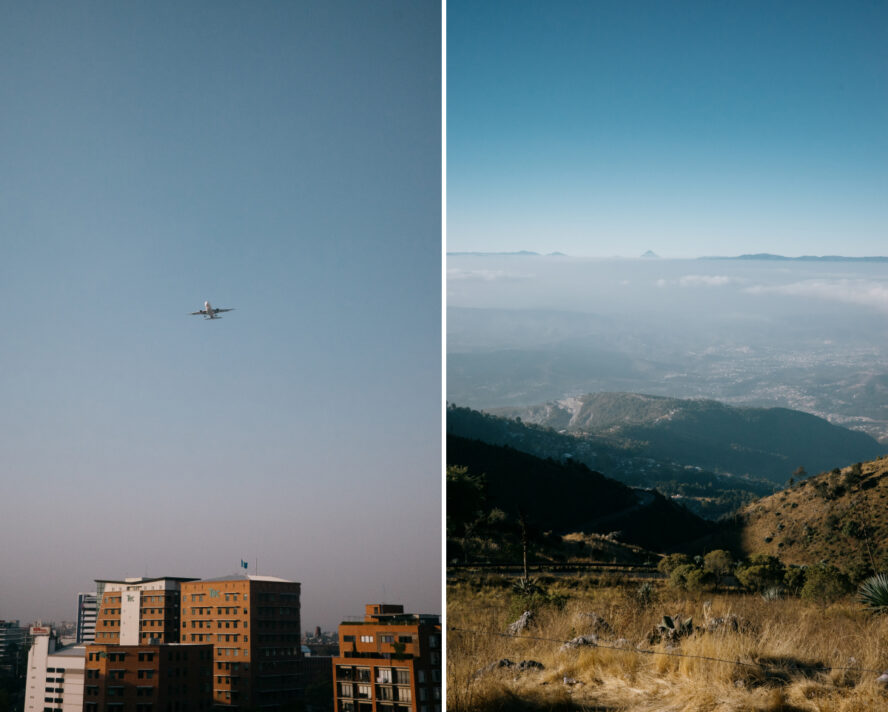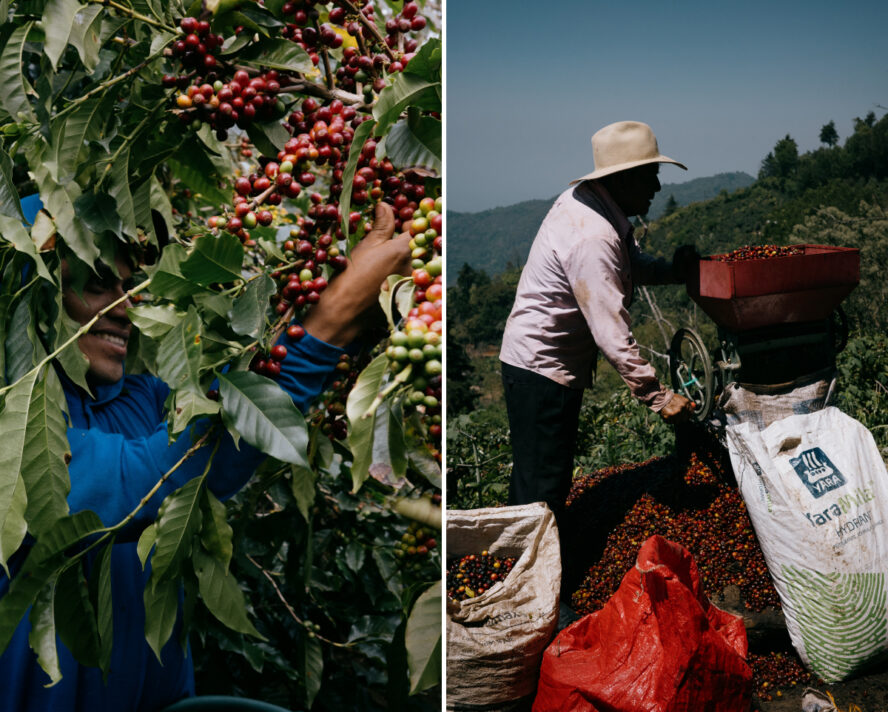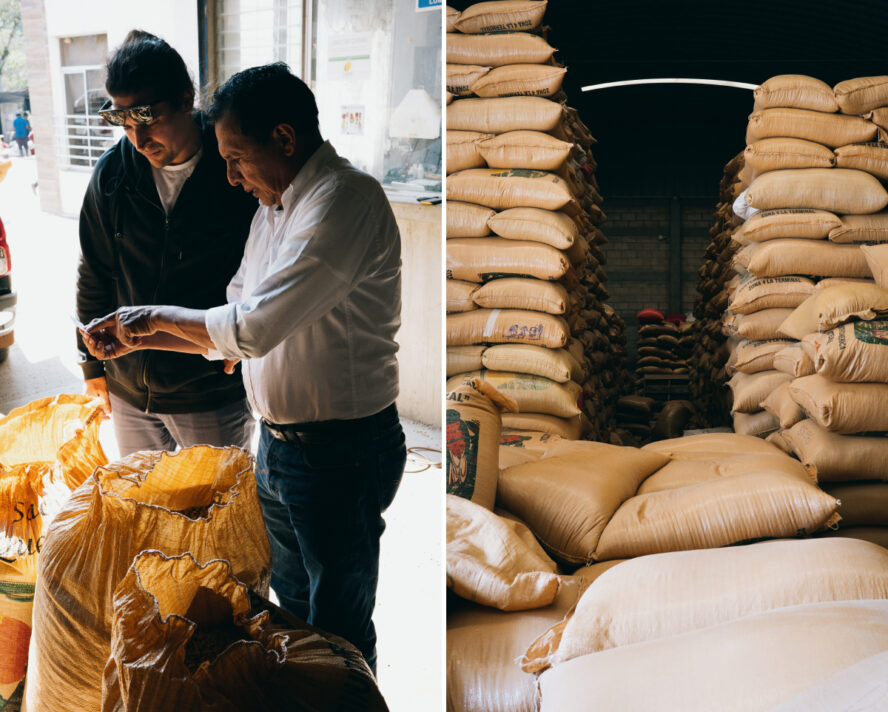Guatemala is a country with a rich coffee tradition, recognized for being the first producer to establish a designation of origin system that characterizes its eight producing regions. Since 1850, coffee has been grown for export, and in 2018, it was recognized as an "Intangible Heritage of the Guatemalan Nation." With 96% of its production dedicated to Arabica coffee, Guatemala ranks tenth in the world in specialty coffee production.
At Right Side Coffee, we travel each season to select unique coffees from a range of producers who grow, harvest, ferment, and dry our lots at source. This direct contact allows us to improve the raw material from the plant, respecting the original and offering the highest quality in every coffee bean.
Purposes of the Trip
The purpose of our recent trip to Guatemala was broad and multifaceted:
- Strengthen our relationship with the coffee-growing communities and cooperatives we work with.
- Learn about the work of six other cooperatives near Huehuetenango.
- Better understand and document local systems and plantations.
Exploring the region allowed us not only to consolidate existing relationships but also to establish new connections with farmers and cooperatives who share our passion for quality coffee.
Learn more about our project here.

Day 1: Travel from Barcelona to Guatemala
Our trip began with a long flight from Barcelona to Miami and then on to Guatemala. The excitement was palpable as we prepared to immerse ourselves in the culture surrounding Guatemalan coffee.
Day 2: Transit to Huehuetenango
On Sunday, March 3rd, we set off for Huehuetenango with Mario, an Anacafe scout. After a five-hour drive, we discussed the current economic situation and the opportunities for coffee growers. Anacafe, a government organization that supports coffee producers, is encouraging pruning of older plants for more sustainable growth.

Day 3: Visits to Jacaltenango and San Antonio Huista
On Monday, March 4th, we left at 5:30 a.m. for Jacaltenango and San Antonio Huista. We met with Carlos and Magdalí Martínez, Anacafe engineers, and Aldo Palacios, our driver and accountant. We visited the "El Sendero" cooperative and met Don Pablo, the cooperative manager. We took 12 samples of Caturra coffee with us.
Later, we visited Guayab's facilities in Jacaltenango, where we met several producers and presented our purchasing model based on quality compensation. We then visited the Rancho Viejo cooperative and took samples of their Anacafe 14, Catuai, Caturra, Sarchimor, and Pacamara varieties.
Day 4: Visit to Maximiliano Hernández's Farm
On Tuesday, March 5th, Luis, an engineer from Guayab, picked us up to visit Maximiliano Hernández's farm. We learned about his pulping and fermentation process, which is carried out by his wife, María Roselia Hernández. We were impressed by their dedication and the meticulous care they put into every step of the process. All of this made us reflect on how we can improve our processes at Right Side Coffee to offer the best coffee beans to our customers in cafes and coffee shops in Barcelona.

Day 5: Meetings in San Marcos
On Wednesday, March 6th, we left a little later than usual and immersed ourselves in discussions about crucial topics such as coffee quality, processing methods, and the challenges facing producers today. From farming practices to drying systems, every detail was carefully and thoughtfully examined to fully understand the complexity and beauty of the coffee production process in Guatemala.
We split up: Joaquín stayed at Anacafe to roast the samples while Mario and I went to visit two cooperatives in San Marcos. We were surprised by the lack of communication about coffee quality and potential pricing. These types of challenges are common in coffee production, but they are crucial to ensuring producers receive fair compensation for their specialty coffee.
Day 6: Reflections on Education and Child Labor
On Thursday, March 7, Carlos spoke to us about literacy and schooling levels, as well as the work of child farm workers. We reflected on possible solutions and the challenges facing the implementation of educational programs in local communities. We also analyzed coffee samples and noticed that many were below quality standards, possibly due to weather conditions. These topics are essential to understanding the social and economic context of coffee producers in Guatemala.
Day 7: Problems with the Humidity Reading Machine
On Friday, March 8, we discovered that the humidity reading machine was not calibrated correctly, which affected our quality measurements. This nearly forced us to return to Spain empty-handed, but we managed to resolve the problem in time. This incident underscores the importance of precision and quality control at every stage of the coffee production process.

Our trip to Guatemala was an enriching and eye-opening experience that allowed us to immerse ourselves in the country's rich coffee culture and strengthen our ties with local communities and cooperatives. Despite some technical setbacks, we managed to overcome the challenges and advance our mission to explore and understand the world of Guatemalan coffee.
We're taking with us not only exceptional coffee samples, but also priceless memories and a deep appreciation for the passion and commitment of Guatemalan farmers. We look forward to continuing to collaborate with our Guatemalan partners and sharing the beauty and quality of Guatemalan coffee with the world.
Right Side Coffee - Award-winning coffee roasters in Barcelona, committed to quality and working directly with producers at source.
More stories here, on our Instagram profile.
